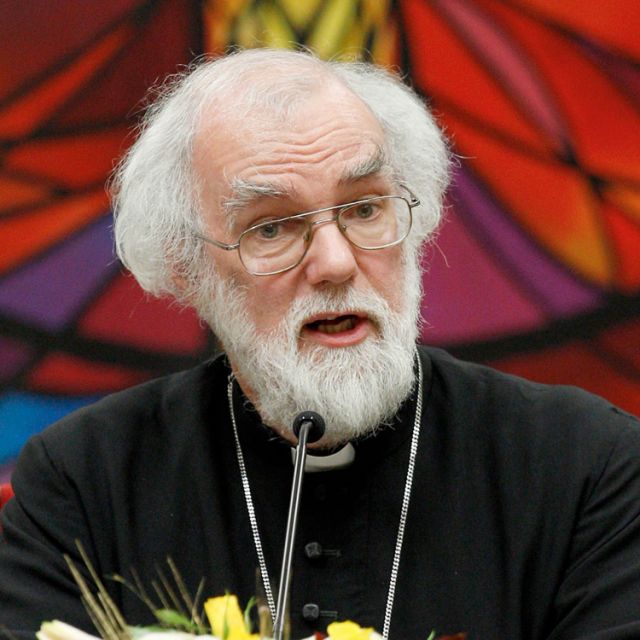The statement released by the archbishop's office said Archbishop Williams' intentions had been conveyed to Queen Elizabeth II, the supreme governor of the Church of England who has the ultimate responsibility of appointing archbishops of Canterbury.
"It has been an immense privilege to serve as archbishop of Canterbury over the past decade, and moving on has not been an easy decision," Archbishop Williams, 61, said in his statement.
"During the time remaining there is much to do, and I ask your prayers and support in this period and beyond," he said.
"I am abidingly grateful to all those friends and colleagues who have so generously supported Jane (wife) and myself in these years, and all the many diverse parishes and communities in the Church of England and the wider Anglican Communion that have brought vision, hope and excitement to my own ministry," the archbishop said.
"I look forward, with that same support and inspiration, to continuing to serve the church's mission and witness as best I can in the years ahead," he added.
Archbishop Vincent Nichols of Westminster, president of the Catholic Bishops' Conference of England and Wales, said in a March 16 statement that he had grown to appreciate Archbishop Williams' "fine qualities."
He praised the Anglican leader's "kindness, his sharp intellect, his dedication to striving for harmony between peoples, especially within the Christian family, his courage and his friendship."
"These will be much missed when he steps down from his demanding office in December," he said. "I will miss him. I thank him for all the service he has given ... I now look forward to nine months of continuing work together."
Archbishop Nichols recalled in particular the "warm welcome" Archbishop Williams offered to Pope Benedict XVI at Lambeth Palace, London, during the papal visit of September 2010, "a visit reciprocated with similar joy just last week" when the pair prayed together in the Church of St. Gregory in Rome.
Archbishop Williams will replace Duncan Robinson, who has served as master at Magdalene College for the past 10 years.
Archbishop Williams has had to deal with such issues as the ordination of women and of sexually active homosexuals -- issued that threatened the unity of the Anglican Communion.
At home, he has often been criticized for allegedly being a liberal who was reluctant to speak out clearly on the pressing issues of the day.
Some Anglicans are already viewing his imminent departure as an opportunity to introduce a different style of leadership.
Andrea Williams, a lay member of the General Synod, the ruling council of the Church of England, said his retirement represented "a crucial time for the established church in this country to provide leadership, clarity and direction."
"For too long the church's voice has been muddled, indecisive and confusing to the public on the critical issues of our time, especially the protection of life, the redefining of marriage and the place of Jesus Christ in the public square," she said in a March 16 statement.
The appointment of a new archbishop of Canterbury is largely political, however, and will involve Prime Minister David Cameron presenting a name to the queen following the deliberations of a specially assembled commission.
Rowan Williams was born in Swansea, Wales, and was educated at Christ's College, Cambridge, where he studied theology.
Beginning in 1977, he spent nine years in academic and parish work in Cambridge. In 1983 he was appointed as a lecturer in divinity at the university.
In 1986 he was appointed as professor of divinity and canon of Christ Church, Oxford, where he was awarded a doctor of divinity degree in 1989.
He was appointed bishop of Monmouth in 1991, and in 1999 he was elected archbishop of Wales.
In December 2002 he was named as the 104th archbishop of Canterbury, the first Welshman to hold the office and the first person since the 13th century to be appointed from outside the English Church.


